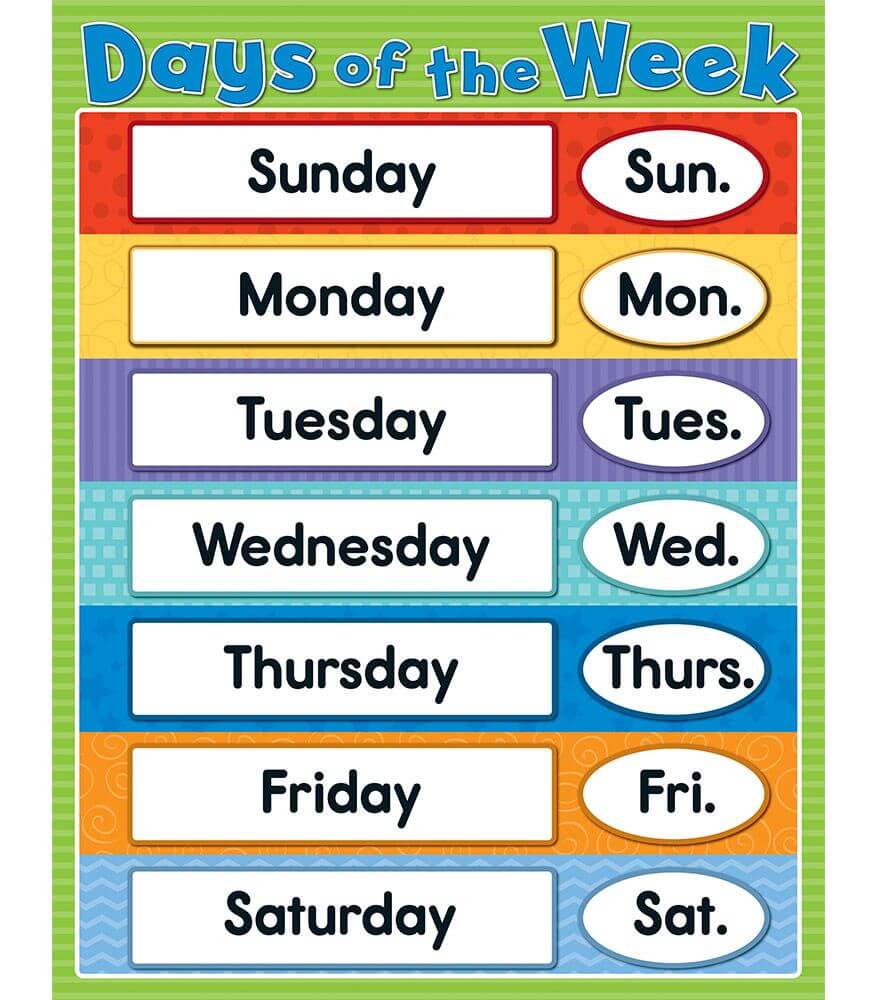Después de haber aprendido las Fruits, Vegetables and Meats, ahora veremos los Days, Months and Seasons.
Days of the week
Los días de la semana provienen de los Nombres de figuras míticas, por lo que la primera letra de cada día debe ser una letra mayúscula.
Ten en cuenta que los días de la semana y los días de semana y NO son lo mismo:

- Monday (Lunes)
- Tuesday (Martes)
- Wednesday (Miércoles)
- Thursday (Jueves)
- Friday (Viernes)
- Saturday (Sábado)
- Domingo (Sunday)
Ten en cuenta que los días laborales (weekdays) y los días de semana (days of the week) NO son lo mismo:
- Los days of the week son los 7 días de lunes a domingo.
- Pero los weekdays (días laborales) son solo los 5 días de lunes a viernes
- Y los weekends (fin de semana) son sábado y domingo.
Months of the year
- January
- February
- March
- April
- May
- June
- July
- August
- September
- October
- November
- December
Letras mayúsculas
Los meses del año en inglés comienzan con una letra mayúscula
- february (incorrecto)
- February (correcto)
- april (incorrecto)
- April (correcto)
Seasons
- Spring (primavera) – In spring the days grow longer, the weather is warmer but it often rains and can get very windy. We celebrate Easter in the spring.
- Summer (verano) – In summer the days are long and the weather’s usually warm and sometimes even hot. We usually go on holiday in the summer.
- Fall / Autumn (otoño) – In autumn the days get shorter, it gets colder and the leaves fall from the trees. We celebrate Halloween in autumn.
- Winter (invierno) – In winter the days are short and it is generally cold and often wet, sometimes it snows. We celebrate Christmas in the winter.
Useful Vocabulary
- Week (semana)
- Year (año)
- Today (hoy)
- Yesterday (ayer)
- Tomorrow (mañana)
- Weekend (fin de semana)
- Month (mes)
En la próxima lección veremos Colors and Shapes.